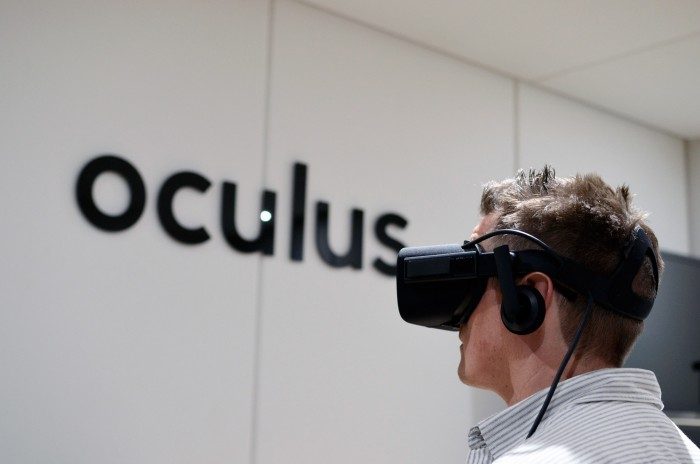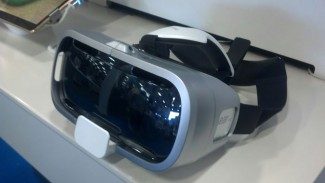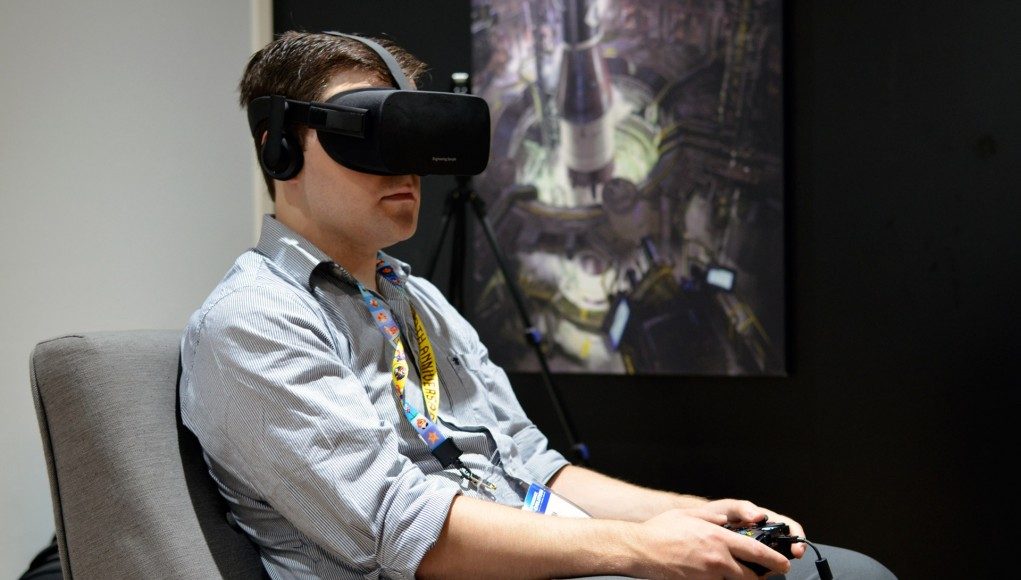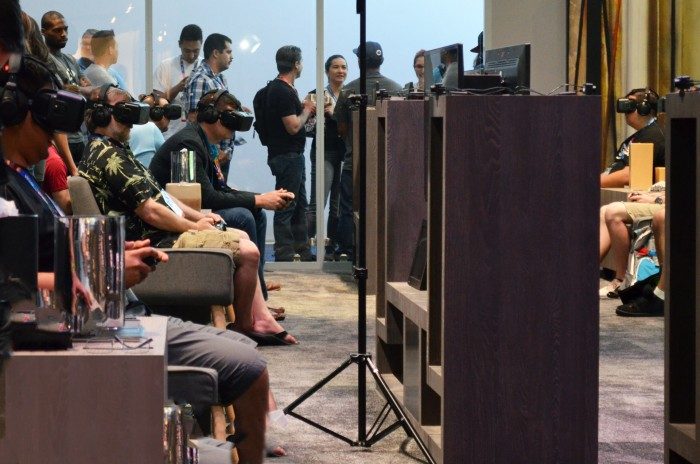Although Oculus has sold more than 175,000 development kits, the vast majority of the world has still never had the opportunity to try the Rift VR headset, let alone any virtual reality headset. For a technology that frequently inspires notions of ‘you have to see it to understand it’, being able to try-before-you-buy will be a major hurdle for consumer adoption. In an effort to educate the public on what VR is all about, Oculus plans to put Rift demo stations in retail locations.
When the consumer version of the Oculus Rift goes on sale in Q1 2016, the company plans to sell the VR headset both online and in brick and mortar stores. Oculus founder Palmer Luckey tells us that in-store Rift demo stations will accompany units on the shelves so that the masses can take VR for a spin.
“Yes, we will be in retail. And we will have demos in retail so that people are able to try [the Oculus Rift],” Luckey said in our Oculus E3 2015 interview. “Because one way to show people VR is to show them at a trade show or a gaming show, another way is for them to try their friend’s unit, and the other way is for them to be able to try it out someplace else, and we want to make sure that they have that ‘someplace else’.”

Luckey also told us that the company’s VR headset would ship internationally, though he couldn’t say whether or not all regions would see a simultaneous Oculus Rift release date.
I remember back in the day before the advent of downloadable demos, the in-store demo station was a veritable Shangri-La of theretofore untested gaming goodness. As demos eventually migrated to discs (oh the joy brought forth by the monthly delivery of Official Xbox Magazine and its demo disc…) and then to direct download, the in-store demo station had lost much of its lust. But you can’t download a VR headset can’t download a VR headset without a 3D printer, a prime opportunity for the in-store demo station to make a comeback.
Oculus has extensive experience with trade show activations, but the company has always had assistants on hand to walk newbies through their first-time VR experience, helping with the finer details like ensuring a proper fit, launching the experience, and wiping down the lenses between each user.

Presumably Oculus won’t be staffing in-store demo stations, but that leaves a big challenge for ensuring a positive experience for each user; even something as simple as a smudged lens can make VR uncomfortable. I can only wonder how they’ll handle the typical stiff security cable that’s almost always attached to expensive demo devices.
The company that’s had the most VR retail experience thus far in the modern VR era is Samsung who launched their mobile Gear VR headset in the U.S. in late 2014 and gradually made the unit available internationally. The headset was created in conjunction with Oculus, who may have benefitted from some of Samsung’s retail leanings, though the headset went through the latter’s retail channels, according to Luckey.
Gear VR is the first serious VR headset to see demo stations available in big box stores. Back in March, the company said that the headset would be available for purchase and demo in more than 100 Best Buy stores, one of the United States’ largest consumer electronics retailers. Samsung has also set up various demo activations, including one in America’s largest mall alongside to the headset’s launch.








